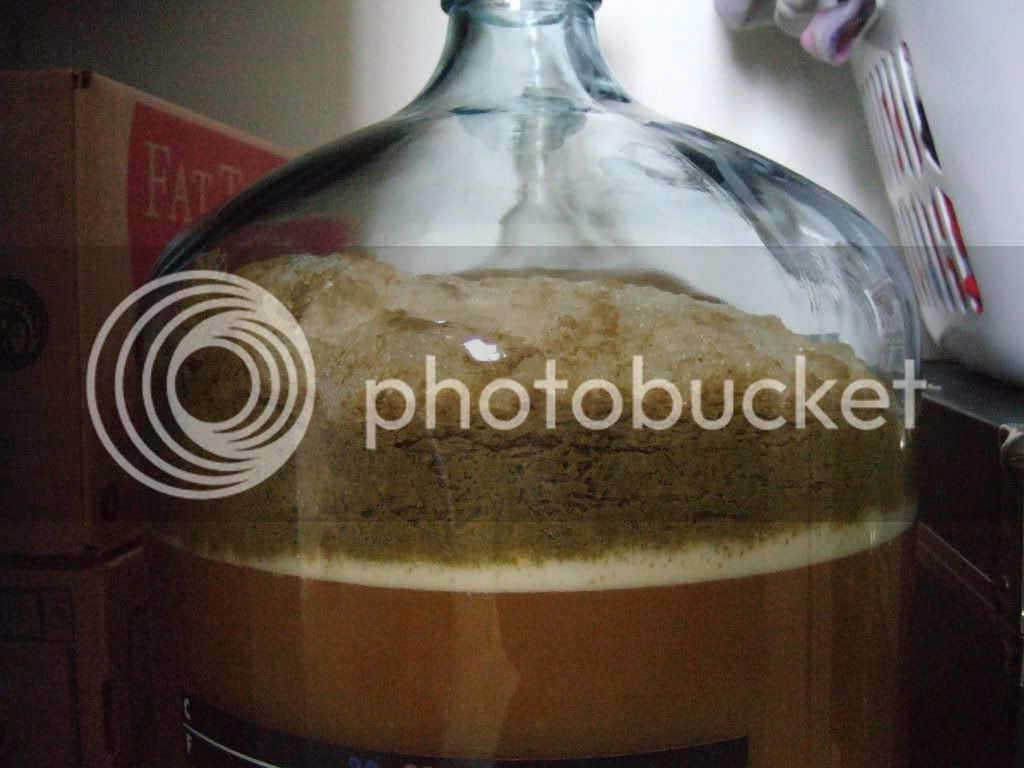This weekend I used nottingham for the first or maybe second time. The only time I've ever used dry yeast was back in my first 2 extract beers that I used the kit yeast.
I'm amazed at how this stuff works! I did an American Wheat and a very very bastardized Ed's Haus Pale both with Nottingham on Saturday. By Sunday morning I needed to change out the growler I used for the Wheat blowoff. By Sunday afternoon I needed to change the growler again due to excess blowoff - and I notice that the Pale has krausen in the lock and is going to explode. So I replace the growler with a bucket and now have 2 beers blasting foam into it. It sounded like a VW microbus was idling in my closet.
I go to head up to bed and I check in - and the bucket's got 3 inches of foam on it. I was kinda scared that it would end up blowing over by this morning but finally things were on their way down and the foam was just a light 1/2" layer in the bucket and both carboys.
This was a WILD fermentation and is probably mostly done in 2 days. I don't have the AC on in the house, so it's probably sitting at low-mid 70s.
Part of me is happy with the results and wants to stop wasting money on liquid yeast, the other is concerned that every beer is going to blow off.
How many people use dry yeast for most beers and only use something else for the specialty stuff that typically needs a yeast profile?
I'm amazed at how this stuff works! I did an American Wheat and a very very bastardized Ed's Haus Pale both with Nottingham on Saturday. By Sunday morning I needed to change out the growler I used for the Wheat blowoff. By Sunday afternoon I needed to change the growler again due to excess blowoff - and I notice that the Pale has krausen in the lock and is going to explode. So I replace the growler with a bucket and now have 2 beers blasting foam into it. It sounded like a VW microbus was idling in my closet.
I go to head up to bed and I check in - and the bucket's got 3 inches of foam on it. I was kinda scared that it would end up blowing over by this morning but finally things were on their way down and the foam was just a light 1/2" layer in the bucket and both carboys.
This was a WILD fermentation and is probably mostly done in 2 days. I don't have the AC on in the house, so it's probably sitting at low-mid 70s.
Part of me is happy with the results and wants to stop wasting money on liquid yeast, the other is concerned that every beer is going to blow off.
How many people use dry yeast for most beers and only use something else for the specialty stuff that typically needs a yeast profile?




